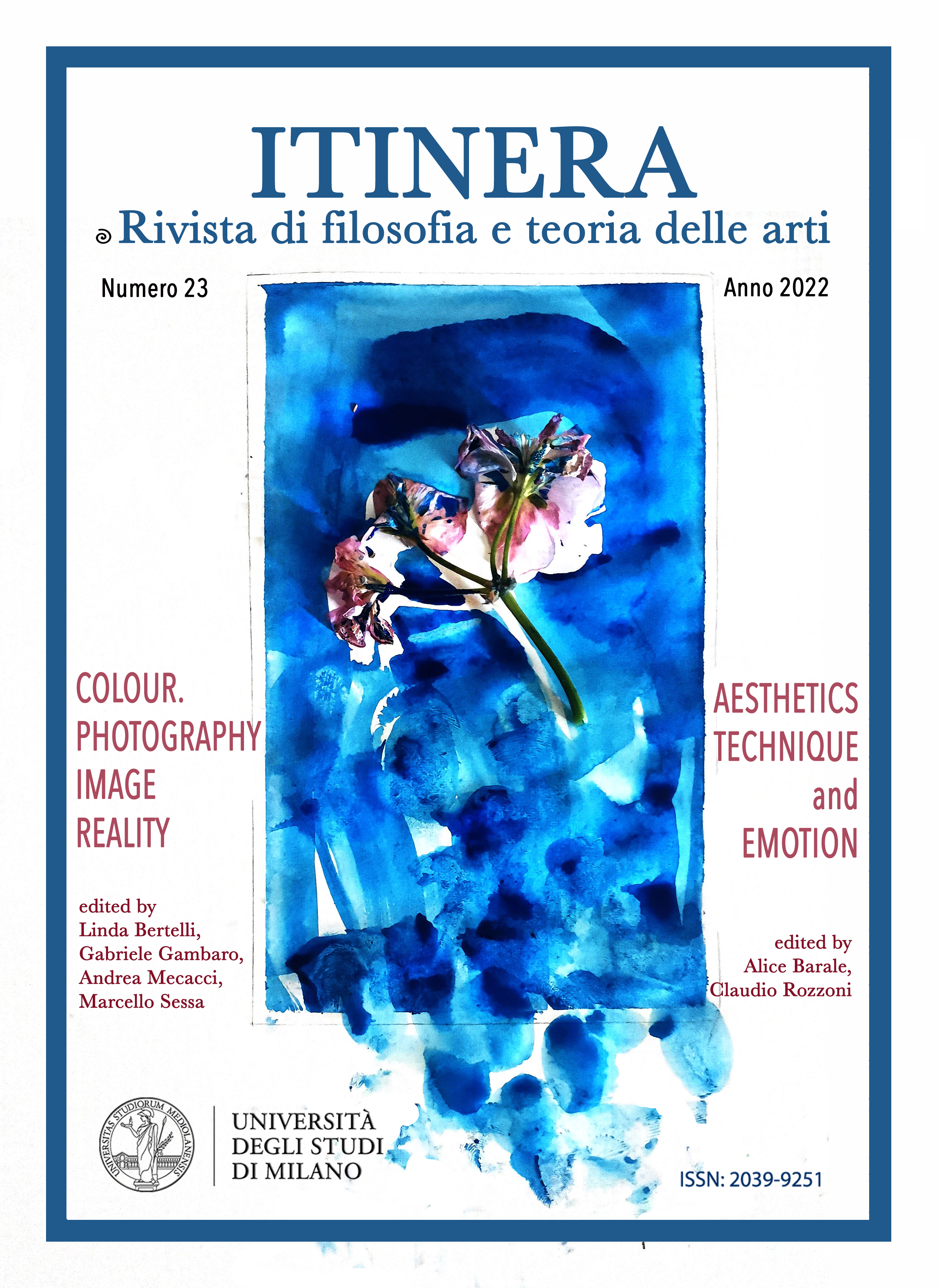Two Sabbath Stories in Walter Benjamin’s Kafka Essay: Wishing on a Constellation of Three Stars
DOI:
https://doi.org/10.54103/2039-9251/18557Abstract
This essay examines the two stories about or related to the Sabbath which Walter Benjamin included in his essay commemorating the tenth anniversary of Kafka’s death. Both are pastiches of Hasidic stories, apparently written by Benjamin himself. The first is based on a legend about a princess who prepares a festive meal for her fiancé on Friday evening, as the Sabbath begins; and the second is about the Jews in a Hasidic village who have assembled on Saturday evening, as the Sabbath is about to end, telling their wishes to each other. These stories, the essay suggests, are not only important for assessing Benjamin’s reading of Kafka’s oeuvre, but must at the same time also be seen as an expression of Benjamin’s own, gradually developing understanding of the Messianic dimensions of his own philosophy of history.
Downloads
Riferimenti bibliografici
Agamben, G., Language and History in Benjamin, in “Differentia: Review of Italian Thought”, 2, 1988, pp. 169-183.
Austin, J.L., How to Do Things with Words, Oxford University Press, Oxford 1962.
Benjamin, W., The Correspondence of Walter Benjamin and Gershom Scholem, ed. by Gershom Scholem, Schocken Books, New York 1989.
Benjamin, W., The Correspondence of Walter Benjamin, 1910-1940, ed. by Gershom Scholem and Theodor Adorno, University of Chicago Press, Chicago 1994.
Benjamin, W., The Arcades Project, transl. by H. Eiland, K. McLaughlin, Harvard University Press, Cambridge (Mass.) 1999.
Benjamin, W., Franz Kafka: Beim Bau der Chinesischen Mauer, in Id., Selected Writings, Vol. 2 (1927-1934), transl. by R. Livingstone, Harvard University Press, Cambridge (Mass.) 1999, pp. 494-500.
Benjamin, W., The Good Writer, in Id., Selected Writings, Vol. 2 (1927-1934), transl. by R. Livingstone, Harvard University Press, Cambridge (Mass.) 1999, pp. 723-727.
Benjamin, W., Franz Kafka: On the Tenth Anniversary of His Death, in Id., Selected Writings, Vol. 2 (1927-1934), transl. by Harry Zohn, Harvard University Press, Cambridge (Mass.) 1999, pp. 794-818.
Benjamin, W., Berlin Childhood around 1900, in Id., Selected Writings, Vol. 3, ed. by transl. by H. Eiland, Harvard University Press, Cambridge (Mass.) 2002, pp. 344-413.
Benjamin, W., On Some Motifs in Baudelaire, transl. by H. Zohn, in Selected Writings, Vol. 4, Harvard University Press, Cambridge (Mass.) 2003, pp. 313-355
Benjamin, W., On the Concept of History, in Id., Selected Writings, Vol. 4, transl. by H. Zohn, Harvard University Press, Cambridge (Mass.) 2006, pp. 389-400
Benjamin, W., Origin of the German Trauerspiel, transl. by H. Eiland, Harvard University Press, Cambridge (Mass.) 2019.
Gellman, U., Stories, in M. Wodzinski (ed. by), Studying Hasidism: Sources, Methods, Perspectives, Rutgers University Press, New Brunswick (N.J.) 2019, pp. 60-74.
Hasan-Rokem G., Magid S., Folk Narratives in M. Wodzinski (ed. by), Studying Hasidism: Sources, Methods, Perspectives, Rutgers University Press, New Brunswick (N.J.) 2019, pp. 127-143.
Liska, V., Benjamin and Agamben on Kafka, Judaism and the Law, expanded version of “Before the Law stands a doorkeeper. To this doorkeeper comes a man...”: Kafka, Narrative, and the Law, in “Naharaim”, 6/2, 2013, pp. 175-94; posted on Academia.edu:
https://www.academia.edu/29020766/Benjamin_and_Agamben_on_Kafka_Judaism_and_the_Law
Rokem, F., Before the Hebrew Notebook: Kafka’s Words and Gestures in Translation, in A. Eshel, R. Selig (ed. by), The German-Hebrew Dialogue: Studies of Encounter and Exchange, De Gruyter, Berlin/Boston 2018, pp. 177-195.
Rugg, L.H., Picturing Ourselves: Photography and Autobiography, The University of Chicago Press, Chicago and London 1997.
Shahar, G., Kafka’s Messages, in “Performance Research”, 26/5, 2022, pp. 34-38.
Sussman, H., The Herald: A Reading of Walter Benjamin's Kafka Study, “Diacritics”, 7/1, 1977, pp. 42-54.
Dowloads
Pubblicato
Come citare
Fascicolo
Sezione
Licenza
Gli autori che pubblicano su questa rivista accettano le seguenti condizioni:
1. Gli autori mantengono i diritti sulla loro opera e cedono alla rivista il diritto di prima pubblicazione dell'opera, contemporaneamente licenziata sotto una Licenza Creative Commons - Attribuzione - Condividi allo stesso modo 4.0 internazionale che permette ad altri di condividere l'opera indicando la paternità intellettuale e la prima pubblicazione su questa rivista.
2. Gli autori possono aderire ad altri accordi di licenza non esclusiva per la distribuzione della versione dell'opera pubblicata (es. depositarla in un archivio istituzionale o pubblicarla in una monografia), a patto di indicare che la prima pubblicazione è avvenuta su questa rivista.
3. Gli autori possono diffondere la loro opera online (es. in repository istituzionali o nel loro sito web) prima e durante il processo di submission, poiché può portare a scambi produttivi e aumentare le citazioni dell'opera pubblicata (Vedi The Effect of Open Access).





